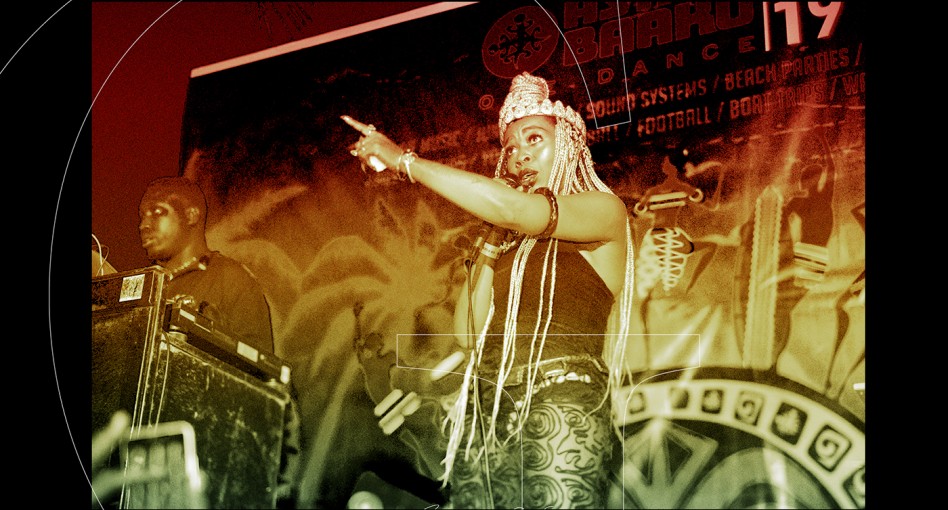
March is an important month in Ghana’s calendar; it’s when the West African country celebrates gaining independence from British colonial rule in 1957. The month also marks consecutive weekends of high-profile music events, including the tenth edition of the DJ-focused Asa Baako festival in Busua and the second Meet Me There Weekender, which offers traditional Ghanaian music, in the Volta Region.
The popularity of these, and other Ghanaian music events, is reflective of growing worldwide interest in West African music and culture. It’s also indicative of Ghana’s position as an increasingly desirable tourist destination, with an Atlantic coastline that stretches 350 miles and an average temperature of over 30 degrees. With political instability coming to an end in the early 1990s, Ghana is also now one of the world’s fastest-growing economies, thanks to its crude oil deposits and cocoa production.
While Ghana’s capital Accra offers a never-stopping cacophony of mostly hiplife — a fusion of Ghanaian highlife music and hip-hop — and Afrobeats, flowing out from shops, cars and brightly-coloured makeshift roadside bars, DJ Mag expects small Western Region fishing village Busua, normally home to around 5,000 people, to be a little more subdued just two days before Asa Baako’s headline event, the Jungle Party. But a walk along the resort’s pristine white-sand beach reveals the party has already started — music is booming from every beachfront bar. “If you go around the festival, around the community, you see independent stages,” explains Accra-based Asa Baako creative director Omon Blanks the following morning.
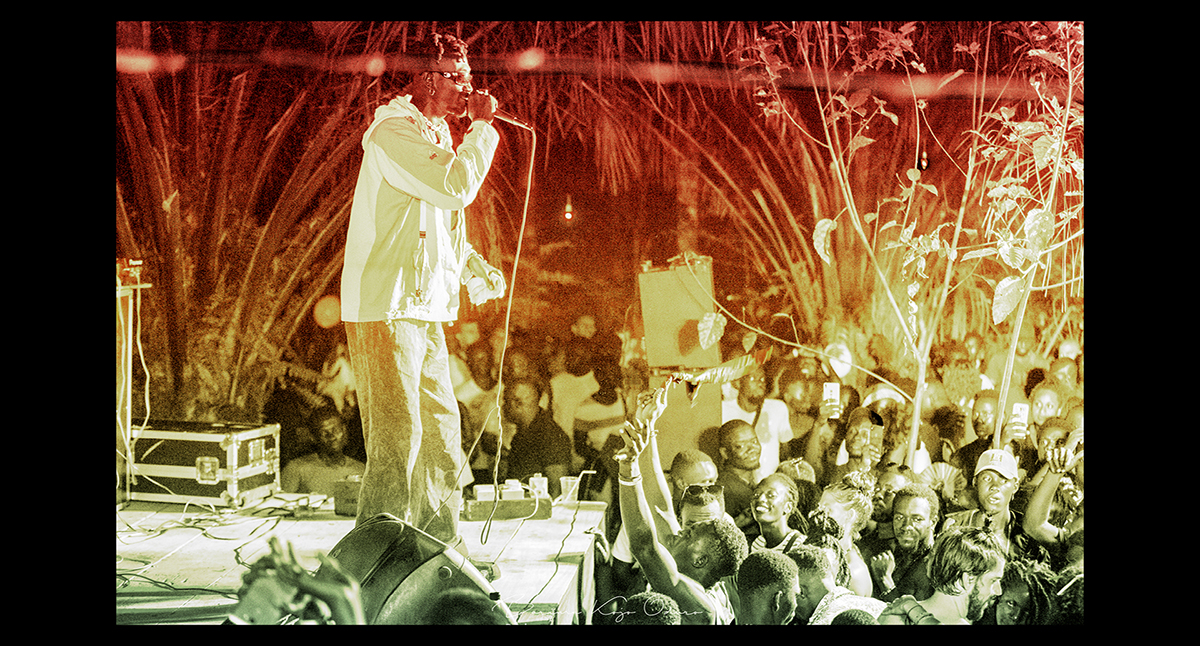
Beginning as a party for 200 people, Asa Baako now attracts over 5,000 revellers annually. The blurring of lines between the official programme — which in the past has hosted high-profile Ghanaian artists such as M.anifest and Wanlov the Kubolor — and the local community’s soundsystems, is a direct result of festival founders Kofi Debrah, Yemisi Mokuolu and Rich Goddard’s wish to grow the event, while not alienating the villagers and their potential to turn a profit — they estimate that since 2015, Asa Baako has been pumping $100,000 into the local economy each year. The resulting atmosphere is carnival-like and the sprawling nature of the event, boosted by numerous street food, clothes and art stalls, reminds us of a multi-purpose family-friendly event like Glastonbury, where the music is almost secondary to the overall experience.
But an increasing amount of control relinquished to local business owners, some who show eagerness to appeal to international guests by playing mainstream hip-hop and dance music, means the event could run the risk of becoming diluted. Blanks explains that one way that he and the founders have countered this is by adopting an 80% Ghanaian and African music policy at their official stages this year. “As the festival keeps expanding and you see the influx of a global presence, what we want to do is not push that global audience away, but when they come here, we want them to see what the continent and the country has to offer for music,” he says.
It’s a smart move which reflects the growing influence of West African sounds worldwide and acknowledges Ghanaians’ passion for homegrown talent, while ensuring the festival’s credibility in an expanding market of festival-like events across the country. It also does something else: by prioritising Ghanaian and West African DJs across a variety of genres, the festival provides a platform for those who have fewer opportunities than DJs playing Ghana’s mainstream sounds. And, while it’s a balancing act that’s still a work in progress, the festival shows that it’s committed to respecting local tastes while also pushing artists with a more leftfield musical agenda. Aside from its breathtaking location, it is this that makes it one of the most exciting events in Ghana.

One DJ who’s been involved with Asa Baako from the beginning and has observed the explosion of interest in West African music is Akwaaba Music founder, BBRAVE. On a mission to get various African sounds online, the French native first came to Ghana in 2007, before settling in Accra a couple of years later. Speaking over the phone after performing at Asa Baako’s rave-like Jungle Party, he tells us that West African music is increasingly popular internationally because “there’s a growing interest, in part from the diaspora, and from people in general looking for different stories and a different side of Africa. For my label and the artists I work with, we’re definitely solicited by people who may not be familiar with the artists themselves but are inspired by what the artists are trying to achieve.”
As BBRAVE explains, Ghana’s music scene was deeply affected by the political instability of military coups and poverty which befell the country in the years after Ghana gained independence from the UK. “The industry was decimated in the ‘80s and by the mid-‘90s there were almost no studios here, almost no recording artists, there was no live music circuit. Then, when radio was liberalised in the ‘90s, it created a massive demand for content,” he says. Accra-based producer Gafacci has been at the centre of one such wave of intense demand, helping to develop the hugely popular Ghanaian dance music Azonto. As one of the country’s most forward-thinking producers, he’s since collaborated with artists like Mina and Famous Eno, performed at international festivals including CTM Berlin and Uganda’s Nyege Nyege, and is soon curating a stage at Accra’s leading street art festival, Chale Wote. But as he explains at his minimalist Teshie home studio, where the only decoration is an homage to Banksy’s shredded Girl With Balloon, making music in Ghana is still marred by challenges: “We don’t have a place producers or even creative people can run to when their rights have been infringed on. There are societies but defunct ones, producers don’t make royalties in this country, artists don’t get money — the way you make money is performances and brand sponsorships, but the way the system is set up, just a few people can be at the top.”
For those who make more experimental music, platforms like SoundCloud and Bandcamp offer a way to grow audiences, but only up to a point. “You can publish your music for free online, and there are some of us who are lucky to have audiences in Europe who will support our stuff. But the user experience here is different. You can’t be on Spotify all day — you buy a bundle of data and after 20 songs your data will run out. So that’s why it’s difficult for more experimental artists,” Gafacci says over a beer.
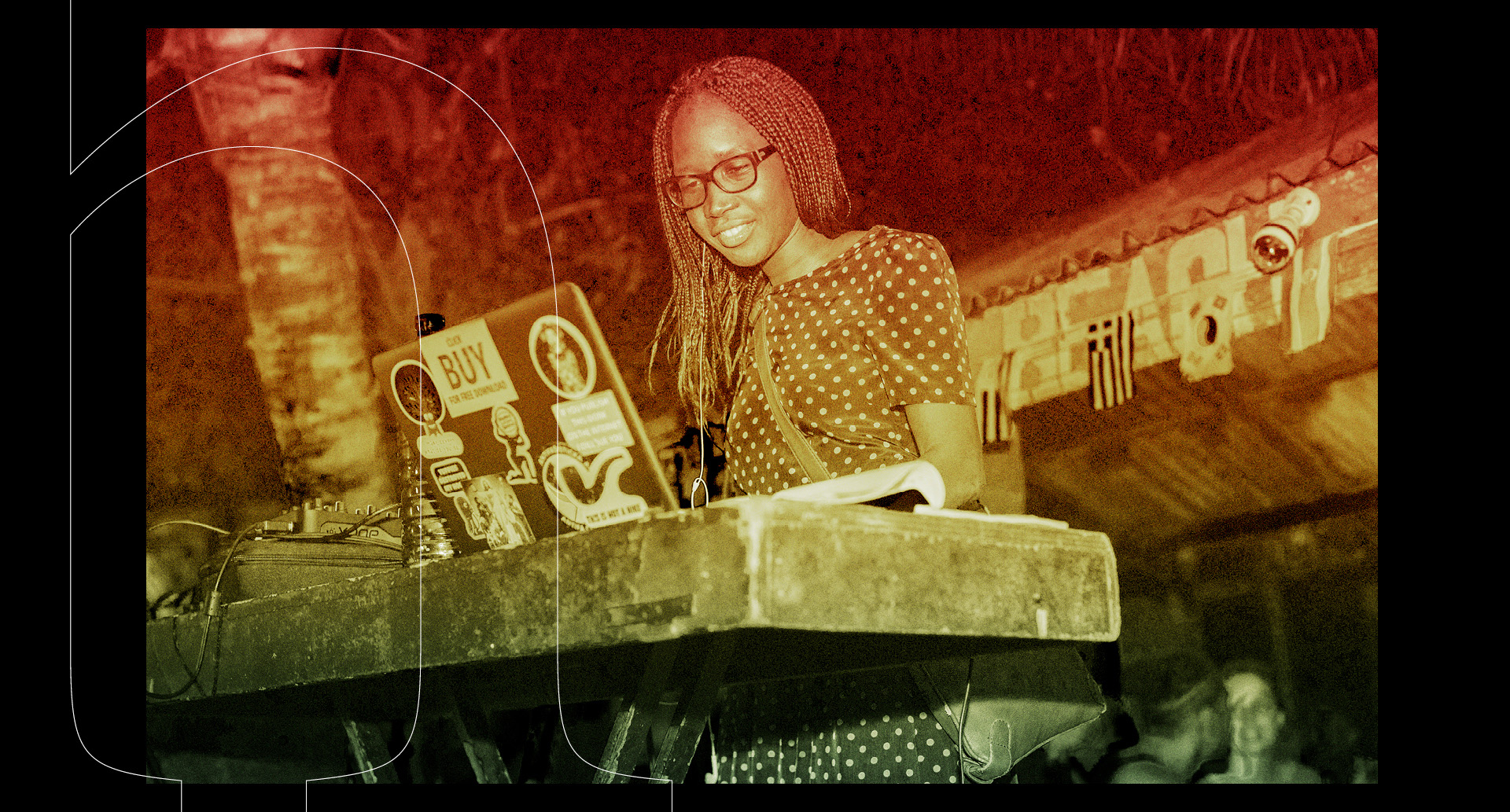
Much like Asa Baako, fundraising event Meet Me There Weekender is programmed in part to showcase those more leftfield artists. By inviting acts such as Gafacci and Zongo Abongo and The Busy Twist, who combine Ghanaian melodies with British-influenced production, the organisers demonstrate that the combination of Ghanaian and electronic music traditions not only yields innovative new sounds, but can bridge the gap between once-separate audiences. We see this as night falls over the one-stage festival taking place on the bank of a pristine salt-water lagoon, and initially distinct groups of local and international revellers come together to dance side by side.
For Asa Baako-performing DJs Nickie Cartel and Fui, the sight of villagers raving to harder riddims at the two festivals is a sign that Ghana is beginning to become more receptive to electronic music. They also infer that a new-found pride in local boundary-pushing artists, such as the trap-inspired collective La Même Gang (who performed at Accra’s first Boiler Room in March), means that Ghanaians are no longer just following American trends or sticking to what they know, but increasingly favouring a homegrown take on sounds from abroad. They hope a similar formula will yield success for them — inspired by South Africa’s Black Coffee, the two are now in the process of making Ghanaian percussion and vocal sample-laced house tracks. “Getting some of the big Ghanaian Afrobeats artists [or] if we can get Mr Eazi or M.anifest to do house tracks will be the breakthrough,” Nickie Cartel says.
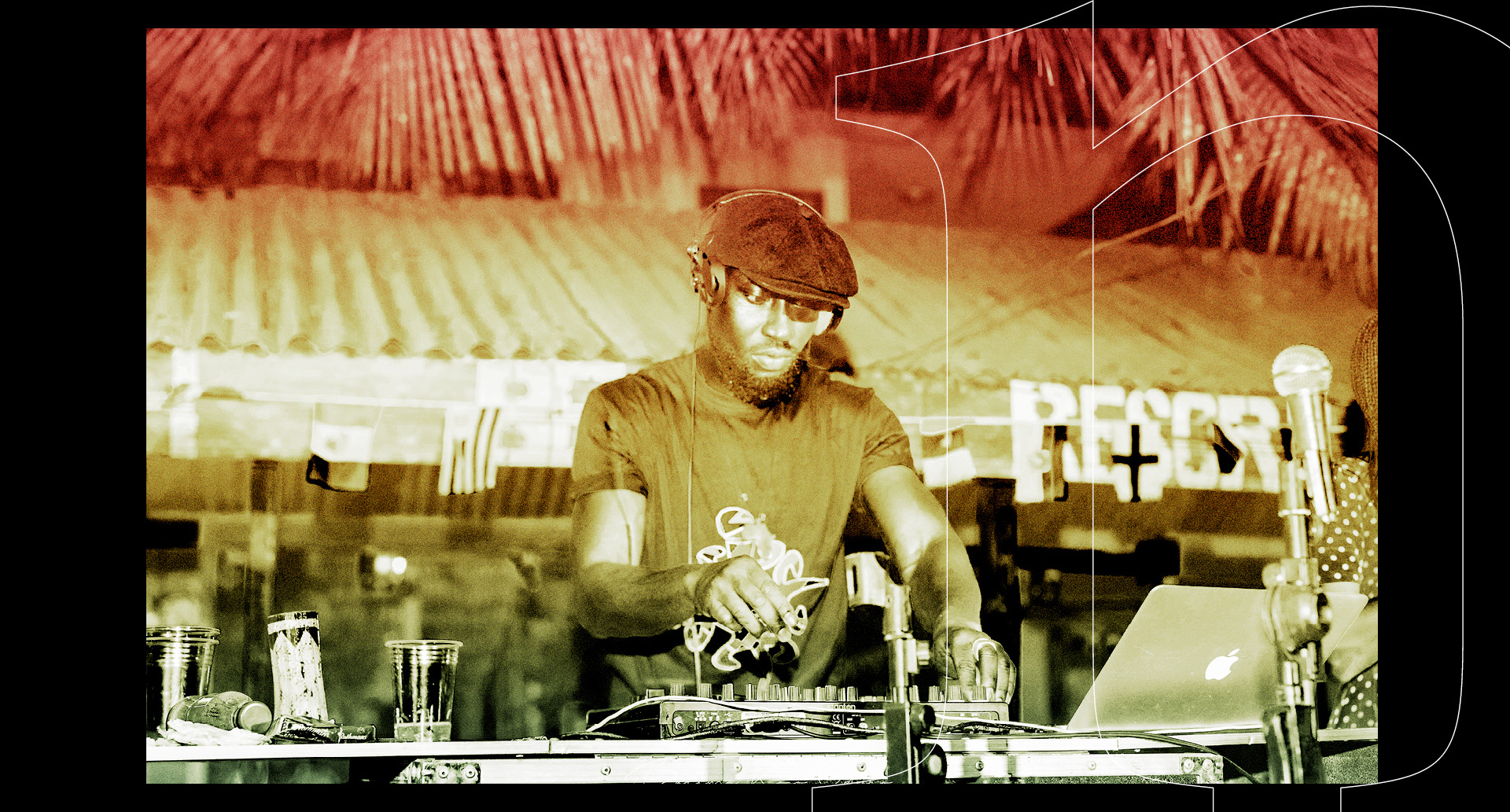
Back in bustling Accra, DJ Mag follows up watching Accra-born house DJ, TMSKD, perform at Asa Baako by visiting upmarket nightclubs Plot 7 and Carbon, where house music is thriving. While the venues are an anomaly within the wider Accra club scene, they do appeal to a select group of locals, as well as expats and tourists. TMSKD, who wears a mask when she performs to combat shyness, tells us that, “People are scared of what they don’t know, so playing house music at first was difficult. But on the electronic music scene all the DJs are very friendly and now I’m in a group [Musiq Electronique] and we have events once a month, trying to get more people on the electronic music wave.”
But for fellow mask-wearing DJ, Keyzuz, who favours genres even more obscure within Ghana — dubstep and experimental bass music — the only path to gaining a platform for the sounds she’s passionate about was pursuing a 100% DIY ethos. In 2016, she started No Requests, a leftfield-genre night where Gafacci played his first gig. Now regularly performing in the UK and mainland Europe, Keyzuz wants to turn her online music platform Beat Phreaks, where boundary- pushing Ghanaian artists share their experiences, showcase live sets and discuss the challenges of their industry, into a collective focused on educating the next generation of niche artists wishing to break out onto the world stage, as she and Gafacci have done. “When you’re passionate about what you do, you find ways to make it work for you. There’s an audience for everything and it’s up to you to either create or find that audience,” she tells us.
However, as all electronic music artists and DJs we talk to articulate, it can be a slow and exhausting journey requiring a variety of skills. “You have to be your own everything,” asserts Asa Baako performer, DJ Chabela, who is pursuing a similar path in her home country of Ivory Coast. “From promoter to engineer, to accountant to logistic director, you wear multiple hats.”
Gafacci is keen to see the challenges as an opportunity, though. He feels that the ever- growing range of artists at festivals such as Asa Baako and Meet Me There Weekender, as well as all the beginnings of independent activity, means now is a pertinent time for electronic music aficionados in Ghana: “I’ve always been an artist who wants to change the narrative from having to seek out commercial and foreign platforms so we can get out there. I’m not saying no to funds and grants, but I just feel like we need to be disruptive — we can break our own backs to get certain things, we can tell our own story.”
Credit: Djmag.com




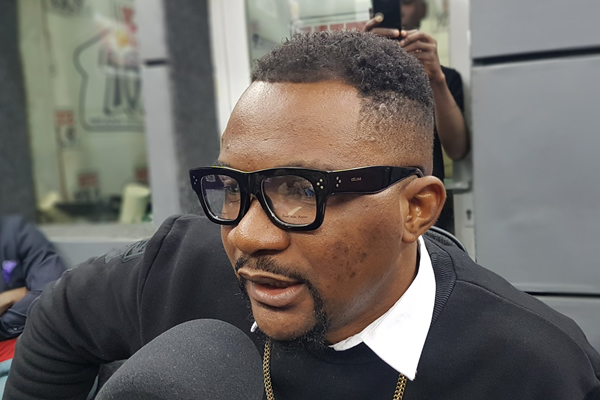

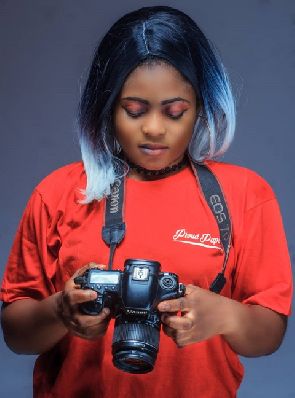
Comment here